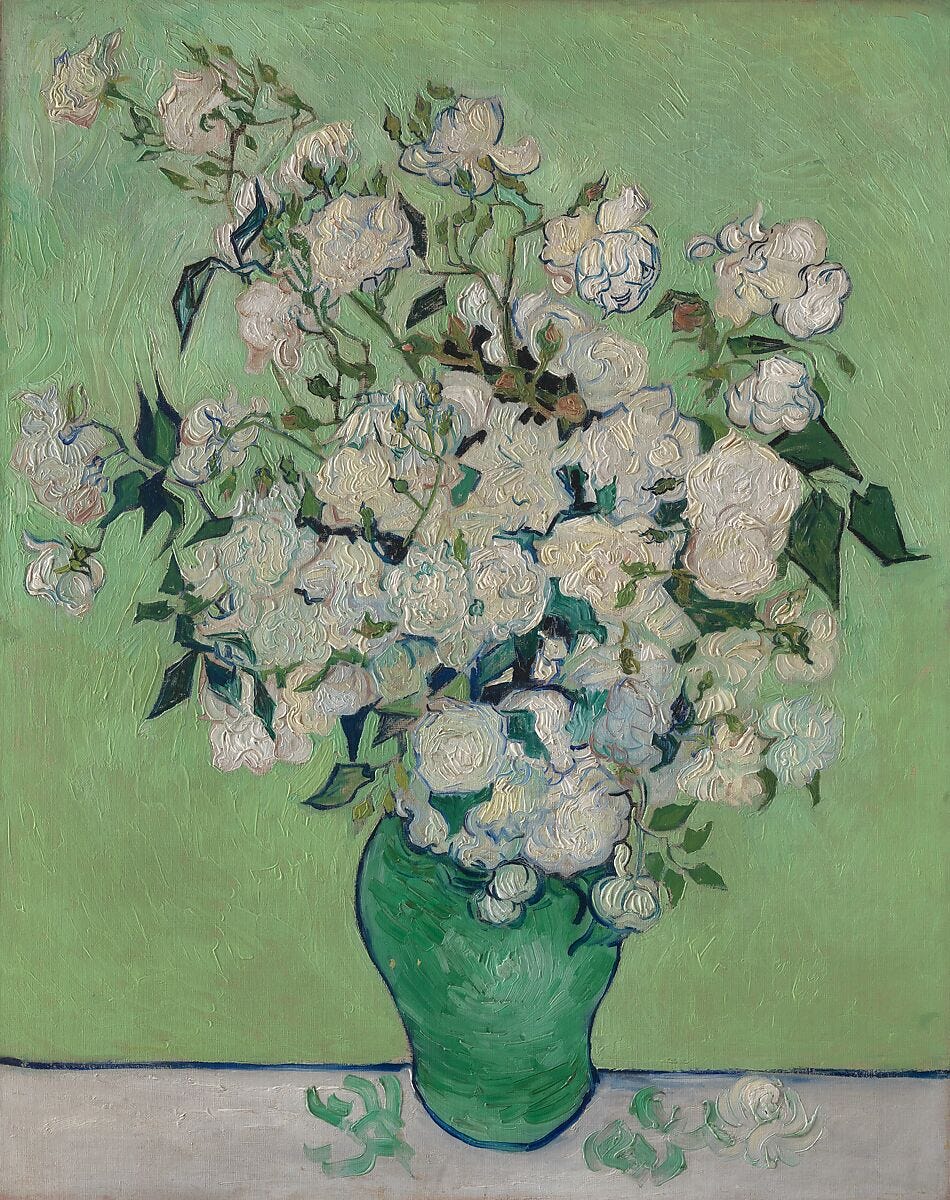When I was a little boy, I went one day to a vacant lot near our house, where I gathered up some dandelions, red clover, and what I think now must have been wild chicory in flower — our Word of the Week. Of course, I was getting them together as a present for my mother, who said, when she saw them, “But these are all weeds!” Oh Mom, you dropped the ball on that one! I have to admit, though, that I like to see lawns full of dandelions when they’re in yellow flower, and where I lived in Pennsylvania, that was the common flower you’d see, along with what we called “bluebells,” but what were really a variety of wild violets. But everybody grew flowers, and in those days it was mostly from seeds and bulbs you’d buy in packets — we had no greenhouses. The Italians had to have flowers — it was a requirement of life. You’d see many an old Italian man planting flowers, like my grandfather, or like the somewhat crabby Mr. DeFazio across the street, who always seemed to me to look a little like Grant Wood’s famous farmer with the pitchfork.
It wasn’t just the look of the flowers I remember from earliest childhood. It was the smell; and to this day, the pleasant sharp flower-smell of petunias, or the very different but also sharp smell of marigolds, not to mention the smell of tomato vines in the sun, will bring me back to childhood before I have the words to think of it: and there I see, in a planter in front of my grandfather’s porch, a spray of petunias, deep red and purple and pink and white. Such things aren’t just associated with nice people. They return you to a whole time and way of life. So I see in my mind’s eye, hanging over a fence, a big flowering bush in the old lady’s yard next to ours, and though I didn’t like her — nobody except her grandchildren who lived next door did — that bush remains in my memory, and after all so many years I know that it wasn’t a cherry tree, as I’d thought in my childish way because the flowers were a soft and beautiful red, but a great flowering quince, one of our favorites.
We associate flowers, naturally, with girls, for their delicacy and their loveliness, and it’s something you’ll find all over the world. One of the loveliest names in Hebrew, Shoshannah — English Susanna — means lily; and of course we’ve got that name too in English, along with Rose, Daisy, Violet, and so on. We also associate flowers with things in full health, “in the pink,” blossoming and blooming. We can do so also with shrewd irony. So Satan, in Paradise Lost, calling his defeated legions from the fiery lake where they lie astonished and entranced, doesn’t apologize for having led them down to Hell by his rebellion. He insults them: “Princes, Potentates, / Warriors, the flower of Heaven, once yours, now lost,” and then they all rouse themselves, embarrassed and abashed.
Flowers, as you might expect, are everywhere to be found in Milton’s grand poem about the loss of Eden. But even in the tundra, where you’ll never find a tree, you’ll find bright and hardy flowers, like the fireweed in the Yukon, and hey, the wild forget-me-not is Alaska’s state flower. I think there’s got to be something wrong with you if you don’t like at least the look of goldenrod, even if your nose gets stuffed up if you come near it! As I said, when we think of flowers, we think of the best of a thing. So the phrase “flower of milk” was once used to describe cream; and for most people, the thought of skimming milk to get rid of all of the cream would be like going around snipping off the heads of flowers to get rid of the color. But then there was also the “flower of wheat,” that is, the best of wheat, what you’ve got when all the bran has been milled and sifted out of it. Hence the English word flour, which is the same word as flower, but it did as Yogi Berra once said when he was giving directions: “When you come to a fork in the road, take it.”
The word flower comes into English through the French, in the Middle Ages: think of French fleur. Those French words were invasive! This one supplanted the native word that we have still preserved, though with a special meaning, in blossom; and then there was the Norse word blomi, English bloom, that pushed blossom further afield from its verbal meaning. But all three words, flower, blossom, and bloom, are cousins, all springing up from the same ancient Indo-European root. The Indo-European f (actually, make as if you’re going to pronounce a b, but blow air through the space between your lips, and let your vocal cords vibrate; there you’ve got Indo-European bh) became b in the Germanic branch of the big family, which is why it’s Latin frater but English brother, and Latin folium but English boll.
May you never know a day without flowers!
Listen to this episode with a 7-day free trial
Subscribe to Word & Song by Anthony Esolen to listen to this post and get 7 days of free access to the full post archives.












